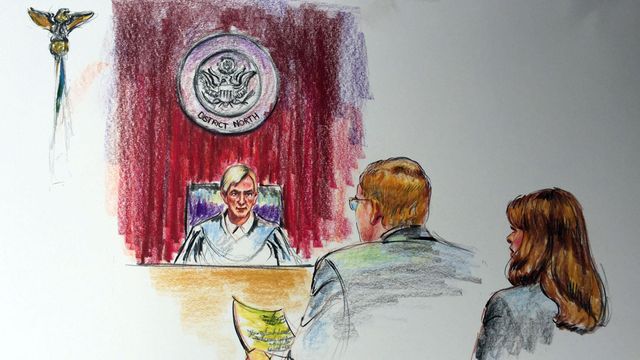Judge weighs blocking HB2
A federal judge said Monday that he needs more time before ruling on whether to put North Carolina's controversial House Bill 2 on hold until legal challenges to it are resolved.
Posted — UpdatedThe U.S. Department of Justice and several transgender people have sued the state, alleging that the law discriminates against the LGBT community.
House Bill 2, which was passed in a one-day emergency legislative session in March, excludes gay and transgender people from a state nondiscrimination policy and prohibits cities and counties from extending such protections to them. It also requires transgender people to use bathrooms in schools and other public buildings that correspond to their birth gender.
The plaintiffs argued that the bathroom provision forces transgender people to choose between putting themselves in danger or breaking the law. Other provisions violate the constitutional right to equal protection for LGBT people, they said.
"(House Bill 2) erodes the privacy of North Carolinians instead of protecting it. It imperils transgender North Carolinians, and it protects no one," said Chris Brook, legal director of the ACLU of North Carolina.
U.S. District Judge Thomas Schroeder peppered them with questions Monday morning during a hearing in Winston-Salem on whether to issue a preliminary injunction against the law. He asked why have single-sex restrooms in the first place and whether privacy concerns should outweigh concerns about discrimination.
Schroeder also said several times that he wasn't clear on the punishment for violating the law or how it should be enforced, and he pointed out that the University of North Carolina system, one of the defendants in the case, seems to be trying to have it both ways – saying campuses would comply with the law but wouldn't enforce it.
Attorneys for the state argued that LGBT people are not a protected class under federal law, so they have no constitutional right to nondiscrimination protections. They also said allowing transgender people to use the bathroom of their choice in public facilities would put women and children at risk.
Schroeder seemed skeptical of that stance too, saying existing state laws against peeping, indecent exposure and trespassing should address any safety concerns.
Tami Fitzgerald, executive director of the North Carolina Values Coalition, said those laws don't adequately protect privacy.
"There's a constitutionally protected right to privacy, and that right is in the bathrooms, locker rooms and showers," Fitzgerald said outside of the federal courthouse in Winston-Salem.
Attorneys for the Justice Department said the right to privacy doesn't outweigh the right to be protected from discrimination, and attorney Paul Smith said discrimination was the intent of House Bill 2.
"The law was passed with no problem existing, simply to create problems for a targeted group of people – the transgender population of the state of North Carolina," Smith said. "Transgender people were using restrooms and locker rooms based on their gender identity. There was no reported problem and no reported invasion of privacy or safety or injury to anyone."
Fitzgerald said several incidents of "voyeurism and sexual assault" have occurred in bathrooms and changing rooms in Target stores nationwide since the chain adopted a policy in April of allowing transgender people to use the bathroom and changing room of their choice.
"Do we want to be a state that looks like Target?" she said. "I think it really shows what the Justice Department is about. They’re about taking gender out of society, and I think that’s pretty radical."
Hunter Schafer, a transgender high school student from Raleigh who's one of the plaintiffs in the case, said the law forced her to chose between breaking the law or going into an uncomfortable and possibly dangerous situation in men's restrooms. Eventually, the North Carolina School for the Arts, a residential high school in Winston-Salem where she lives in the girls' dormitory, gave her a private bathroom.
Her father, Mac Schafer, said his daughter knows who she is and is a threat to no one.
"As a Presbyterian minister, I believe fear builds barriers between people and communities. I believe the HB2 legislation is constructed on unfounded fear," Mac Schafer said.
Gov. Pat McCrory and legislative leaders, who have been named as defendants in the lawsuits, didn't attend the hearing.
Schroeder said he would have a ruling on the injunction as soon as possible, knowing that most schools statewide start in a few weeks and that school districts need to know how to proceed.
Related Topics
• Credits
Copyright 2024 by Capitol Broadcasting Company. All rights reserved. This material may not be published, broadcast, rewritten or redistributed.






